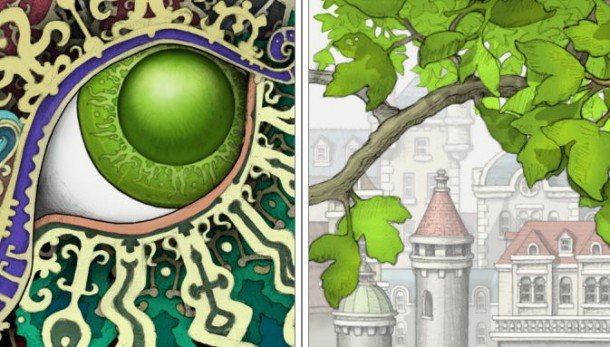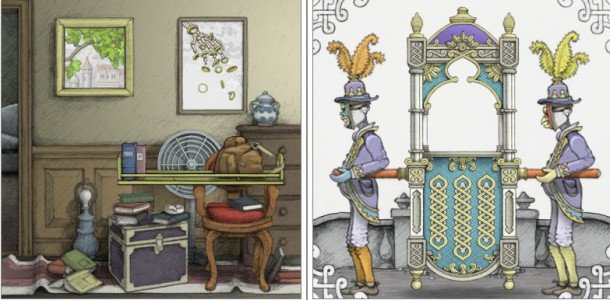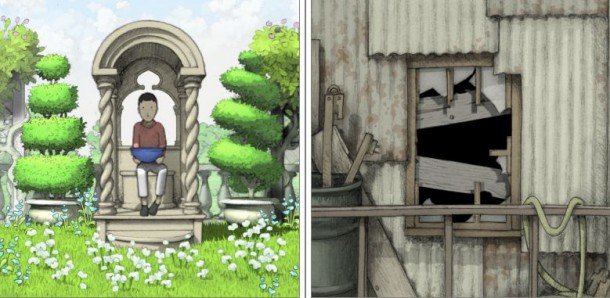Gorogoa first look: a charming and beautiful illustrative puzzle game

A little boy is standing next to a street sign looking dejected. The source of his sadness is obvious: the sign shows an archway leading to a lush garden, but the wall next to the boy is blank.
I'm playing Gorogoa, an illustration puzzler (sound the new-genre klaxon!) built around seeing connections between different pieces of Jason Roberts' beautifully drawn game world.
When I click on the sign, it expands to fill one of four game tiles. You can now separate the sign from the archway and drag it onto a blank tile. Zooming out from the now-empty sign you're back with the dejected boy. You drop the archway onto the plain wall and he perks up, scampering through into the garden.

“The idea began a long time ago as something more like an interactive comic strip, whose panels could move around and interact with one another,” Roberts tells me. “I was also mulling over strange variations on card and tile games. Somehow all of that slowly boiled down into the design you see now.”
The demo of Gorogoa I played involves collecting coloured apples in response to the sighting of an ornate dragon. I ask whether this is a snippet of the final story. “It's certainly more than a proof of concept,” says Roberts. “Most of what you see in the demo is intended to be in the final game, but some details have changed and a lot has been added.”
However he is reluctant to talk about specific plot elements just yet. “There are many scenes and narrative signposts – in fact, whole dimensions to the story – that are absent from the demo. But even when it's all in place, it should take until the end of the game before the structure really reveals itself.”

I've played through the Gorogoa demo a number of times. The first foray was marked by an appreciation of the tile interactions and the artwork – illustration fans may note traces of Christopher Manson and Arnold Lobel in the scenes – but the story was less apparent.
Keep up to date with the most important stories and the best deals, as picked by the PC Gamer team.
This is because, while progression is relatively linear, it's occasionally unclear how you should move forward. With only four tiles to play around on you can't get too lost, but the occasional pang of frustration disturbs the game's flow. Pleasure is greatest in a seamless playthrough and so I began almost speedrunning the demo once I'd learned the sequences.
The sensation, I felt, is closest to being a child and listening to an adult read you your favourite book, whose contents you have memorised. Misclicks cause the same tension as mispronunciations or missed pages. It's a peculiar but ultimately charming experience.
Roberts is now working with composer Austin Wintory (who also worked on Journey) and sound designer Eduardo Ortiz Frau, and aims to release Gorogoa on PC and Mac in mid-2014.

